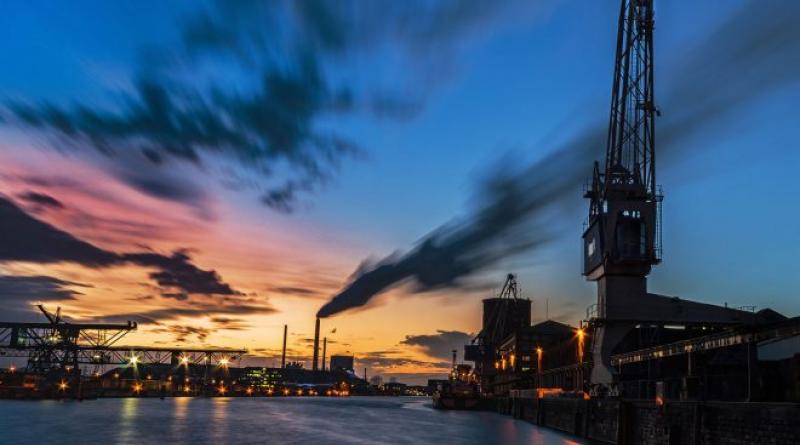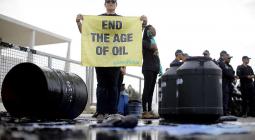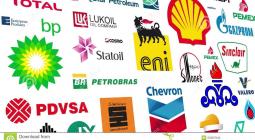Price crash, pandemic put fossils in peril as investors get nervous.

Apart from a bit of wishful thinking from a veteran oil and gas financier in Calgary, the North American fossil industry is being devastated by the combination of low oil prices and plummeting demand driven by the pandemic, with investors in both Canada and the United States becoming ever more skeptical of an industry that was in rough enough shape before the latest crisis hit.
In Canada, the Globe and Mail points to a “hefty jump” in interest costs for Suncor Energy—the country’s biggest oil producer and refiner—as evidence that lenders “have become wary of the Canadian oilpatch as it struggles with the collapse of crude prices”. Overall, the Canadian Association of Petroleum Producers (CAPP) says the Canadian industry has lost C$6 to $8 billion in investment in the last three weeks.
And in an exclusive report from the U.S., Reuters cites four leading banks that may be preparing to seize equipment from shale companies, rather than losing money on loans to drilling operators that were seen as a great bet from a strictly financial standpoint…until they weren’t.
Last week, Suncor said it had sold C$1.25 billion in bonds to pay off older loans, but only by paying interest at a rate nearly 2% higher than it was able to negotiate a year ago. That news comes as the industry absorbs a cascade of dire news, with oil prices down 60% in three months, banks dialing back their lending to small and mid-sized fossils, and the industry pushing for what the Globe explains as an “expected multi-billion-dollar federal aid package, which may give banks added security to keep lending to the industry in one of its darkest times.”
“When you see Suncor’s cost of borrowing go up that much, what does that tell you about all these other smaller companies?” Raymond James analyst Jeremy McCrea told the Globe. “It’s come to the point where they wouldn’t be able to borrow here. That’s the situation we are in now, where the government has to come in and provide some kind of mechanism to continue liquidity.”
(But don’t forget, the industry doesn’t want you calling it a bailout!)
The news story recounts Canadian fossils cutting production by more than a million barrels per day as companies watch their cash flow run low. “Many smaller producers have credit backed by the value of their oil and gas reserves, and that capacity is currently being evaluated by lending syndicates based on expectations for sharply lower oil prices,” the Globe explains. While banks won’t want to withdraw the fossils’ lines of credit, “borrowing capacity in many cases will be reduced to the levels that have already been drawn,” the paper adds, citing McCrea. “This is especially true for companies that have other debt on their books that is set to mature in the coming year.”
“We are most concerned about the reduced financial flexibility available to these producers into a potential price recovery,” McCrea and colleague Chris Cox warned in a research note last week. “In most cases, we believe this will have the effect of limiting the capacity of these firms to quickly redeploy capital in a recovery environment.”
All in all, “you have to expect that not all entities will survive through this process. Some of the weaker entities with higher cost of production may not see enough support to get through,” said Royal Bank of Canada CEO Dave McKay. “There will be consolidation, I think, on both sides of the border. But you still want to protect the core of your sector, and I think the programs could take a number of shapes or forms.”
The picture is just as fraught (from fossils’ point of view) on the other side of that border, with financial giants JPMorgan Chase, Wells Fargo, Bank of America, and Citigroup “each in the process of setting up independent companies to own oil and gas assets,” Reuters reports, citing multiple contacts familiar with the decisions. “The banks are also looking to hire executives with relevant expertise to manage them, the sources said.”
Even before the results of last week’s OPEC+ and G20 meetings were known, “few believe the [proposed supply] curtailment can offset a 30% drop in global fuel demand, as the coronavirus has grounded aircraft, reduced vehicle use, and curbed economic activity more broadly.”
The U.S. industry’s deeper problem is that “oil and gas companies working in shale basins from Texas to Wyoming are saddled with debt,” Reuters adds. “The industry is estimated to owe more than US$200 billion to lenders through loans backed by oil and gas reserves. As revenue has plummeted and assets have declined in value, some companies are saying they may be unable to repay.” So far, industry giant Whiting Petroleum filed for bankruptcy April 1, and the news agency says Chesapeake Energy, Denbury Resources, and Callon Petroleum have hired debt advisors.
Which leaves their financial backers forced to consider extreme measures, if they can even get regulatory approval to proceed. “If banks do not retain bankrupt assets, they might be forced to sell them for pennies on the dollar at current prices,” Reuters explains. “The companies they are setting up could manage oil and gas assets until conditions improve enough to sell at a meaningful value.”
It’s an approach the banks haven’t had to consider since the late 1980s, “when another oil price rout bankrupted a bunch of [fossil] energy companies.” Since then, they’ve relied on financing deals that gave them priority for repayment over other creditors if a fossil folded.
The crash in Canadian oil prices is also giving new hope to Minnesota campaigners working to stop Enbridge’s controversial, US$2.6-billion Line 3 pipeline, the Star Tribune reports. “There is a lot of new evidence and changed circumstances,” said Friends of the Headwaters attorney Scott Strand. “Our case is stronger. [Oil] demand is gone, and it’s not going to snap right back up. There are long-term demand problems.”
Elsewhere, colossal fossil ExxonMobil announced a 30% spending reduction, part of a brutal, $27-billion cut in U.S. drilling budgets that analysts see landing most harshly on the smallest, weakest shale companies. Even the vaunted liquefied natural gas (LNG) industry is expected to take a hit after enjoying a record year in 2019.
None of which would seem to justify the silver lining that one Canadian fossil investor tried to suggest in a keynote address to a CAPP virtual summit last week. “We’ve been through now about six years of difficult markets and what seemed like interminable—sometimes hellish—hostility and resistance to our industry,” ARC Financial Corporation co-founder Mac Van Wielingen told the meeting.
“What is different now is that Canadians are going to see and experience extremely difficult conditions in all respects within Canada, including skyrocketing national and provincial deficits,” he added. “There’s no question in my mind it’s going to force more realism, more pragmatism, and a reordering of our central priorities. Exactly to what extent, we’ll have to see.”
The news reports from The Canadian Press and the Financial Post give no indication of why Van Wielingen sees a pragmatic economic recovery strategy dragging private investment or public subsidies back to an overpriced industry that can’t compete with renewable energy or energy storage, much less energy efficiency strategies that are even more affordable. But CP did find some clearer thinking from another source.
“True pragmatism would recognize that oil is a sunset industry and that the energy industry of the future will be zero-carbon renewables,” said Greenpeace Canada Senior Energy Strategist Keith Stewart, adding that the recovery must include transition support for fossil workers and communities, but not in anticipation of another oil boom.
12 April 2020
The Energy Mix




